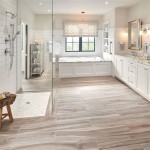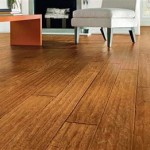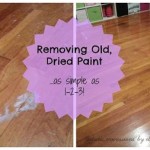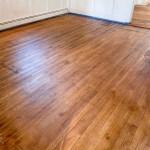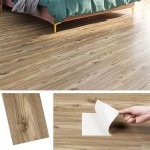Vinyl vs. Engineered Wood Flooring: A Comprehensive Comparison
Choosing the right flooring for your home is a significant decision that impacts both aesthetics and functionality. Vinyl and engineered wood flooring are popular options that present distinct advantages and drawbacks. This article provides a comprehensive comparison of these two flooring types, exploring their key features, pros, and cons to help you make an informed decision.
Durability and Water Resistance
Vinyl flooring boasts superior durability and water resistance compared to engineered wood. Vinyl is generally more resilient to scratches, dents, and stains, making it an ideal choice for high-traffic areas or homes with pets. It also offers excellent water resistance, making it suitable for kitchens, bathrooms, and basements. Engineered wood, while durable, is susceptible to water damage and should be avoided in areas prone to spills or moisture.
Cost and Installation
Vinyl flooring is typically more affordable than engineered wood flooring. Its lower cost extends to installation, as it is easier to install than engineered wood. Vinyl planks can be clicked together without the need for specialized tools, while engineered wood often requires professional installation using glue or nails. This cost difference can be significant, especially for large areas.
Appearance and Aesthetics
Engineered wood flooring often has a more natural and elegant appearance than vinyl. It offers a wide variety of wood species, grain patterns, and finishes to match any décor style. Vinyl flooring, while improving in mimicking wood grains, still lacks the true wood look and feel. However, vinyl flooring offers a wider range of colors, patterns, and textures, including stone and tile imitations, providing greater design flexibility.
Maintenance and Cleaning
Vinyl flooring is incredibly easy to maintain and clean. Its non-porous surface resists dirt and stains, and it can be easily wiped clean with a damp mop. Engineered wood flooring requires more frequent cleaning, as dirt and debris can accumulate in the grooves between planks. It is crucial to use specialized cleaners to prevent damage to the wood finish.
Environmental Impact
Engineered wood flooring is generally considered more sustainable than vinyl. It is made from natural wood resources, and some manufacturers use recycled materials in their production. Vinyl flooring is primarily made from petroleum-based products, contributing to a higher carbon footprint. However, some vinyl flooring is now being manufactured with recycled materials and is becoming increasingly eco-friendly.
Installation Methods
Both vinyl and engineered wood flooring can be installed in various ways. Vinyl flooring typically comes in click-lock planks or tiles that can be easily installed over existing flooring. Engineered wood flooring can be nailed, glued, or floated over a subfloor. The installation method depends on the specific flooring product and the existing floor conditions.
Sound Absorption
Vinyl flooring generally offers better sound absorption than engineered wood. Its thicker material and denser construction can help reduce noise levels, making it a suitable choice for multi-level homes or spaces where noise reduction is important. Engineered wood flooring can be noisy, especially when walking on it, requiring the use of underlayment to improve sound insulation.
Durability and Longevity
Engineered wood flooring is generally considered more durable and longer-lasting than vinyl. With proper care and maintenance, engineered wood floors can last for decades. Vinyl flooring may have a shorter lifespan, especially in high-traffic areas, and may need to be replaced sooner. However, advances in vinyl technology are leading to more durable and long-lasting products.
Variety and Options
Both vinyl and engineered wood flooring offer a wide variety of styles, colors, and finishes to choose from. Vinyl flooring provides greater versatility with its ability to mimic different materials, including wood, stone, and tile. Engineered wood flooring offers more natural variations in grain pattern and color, creating a unique look for each room.
Summary
Choosing between vinyl and engineered wood flooring ultimately depends on individual preferences, budget, and lifestyle. Vinyl flooring is a budget-friendly, durable, and water-resistant option, ideal for high-traffic areas and busy households. Engineered wood flooring offers a more natural and elegant aesthetic, superior durability, and longevity. By carefully considering the pros and cons of each flooring type, you can make an informed decision that best suits your needs and preferences.

Engineered Wood Vs Vinyl Plank A No Nonsense Comparison And Beyond Blog

Engineered Wood Vs Vinyl Plank Flooring Which One To Pick Déco Surfaces

Luxury Vinyl Plank Flooring Vs Engineered Hardwood Next Day Floors

Engineered Timber Flooring Vs Vinyl

Vinyl Vs Engineered Hardwood Flooring From The Forest Llc

Lvp Vs Hardwood Flooring Comparison Guide

Which Flooring Is More Durable Laminate Engineered Hardwood Or Vinyl Plank Major

Engineered Hardwood Vs Vinyl Differences Cabinets Core

Vinyl Vs Engineered Wood Flooring Which To Choose For That Rustic Touch The Floor Gallery

Engineered Wood Vs Vinyl Plank Flooring Which One To Pick Déco Surfaces

